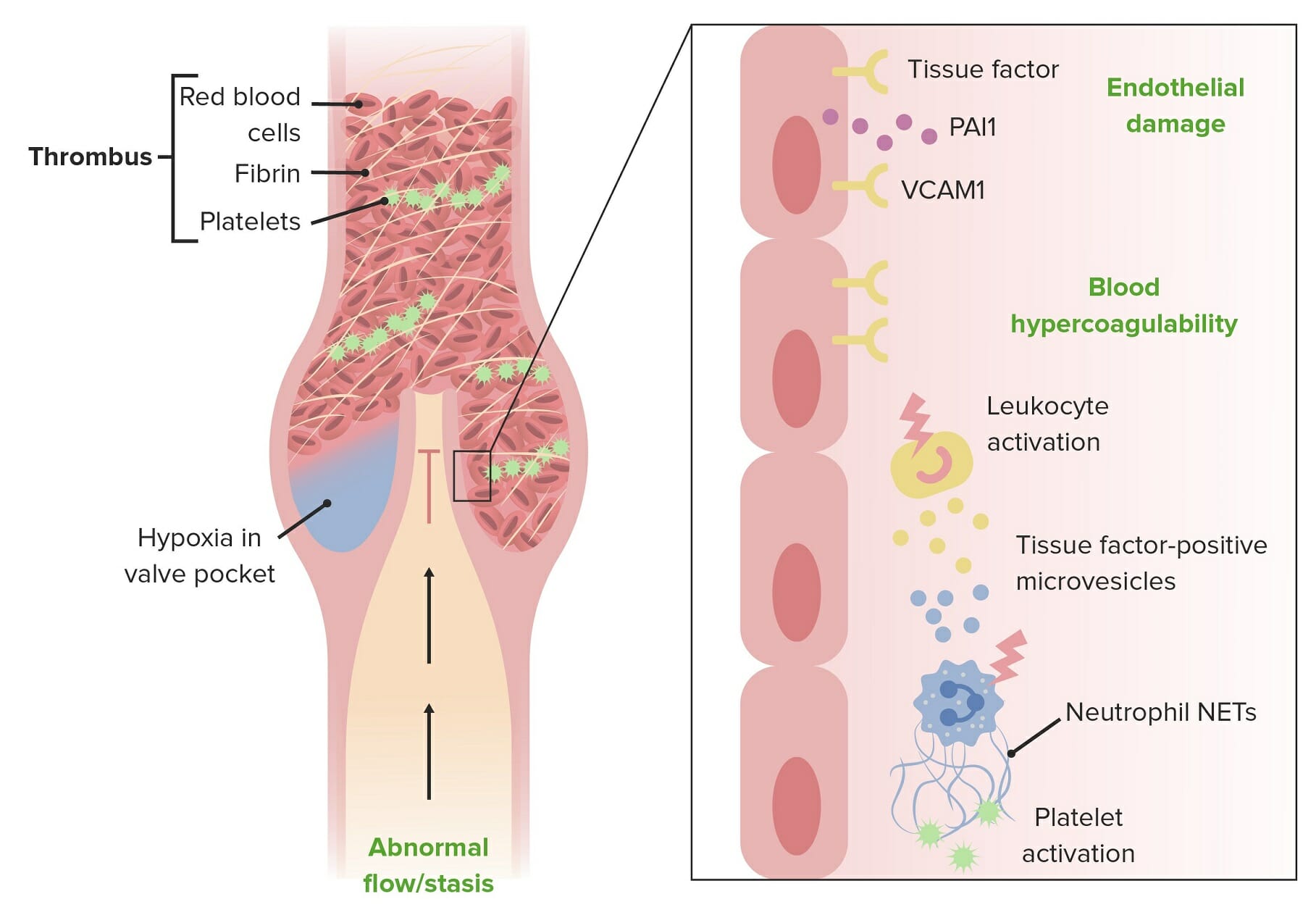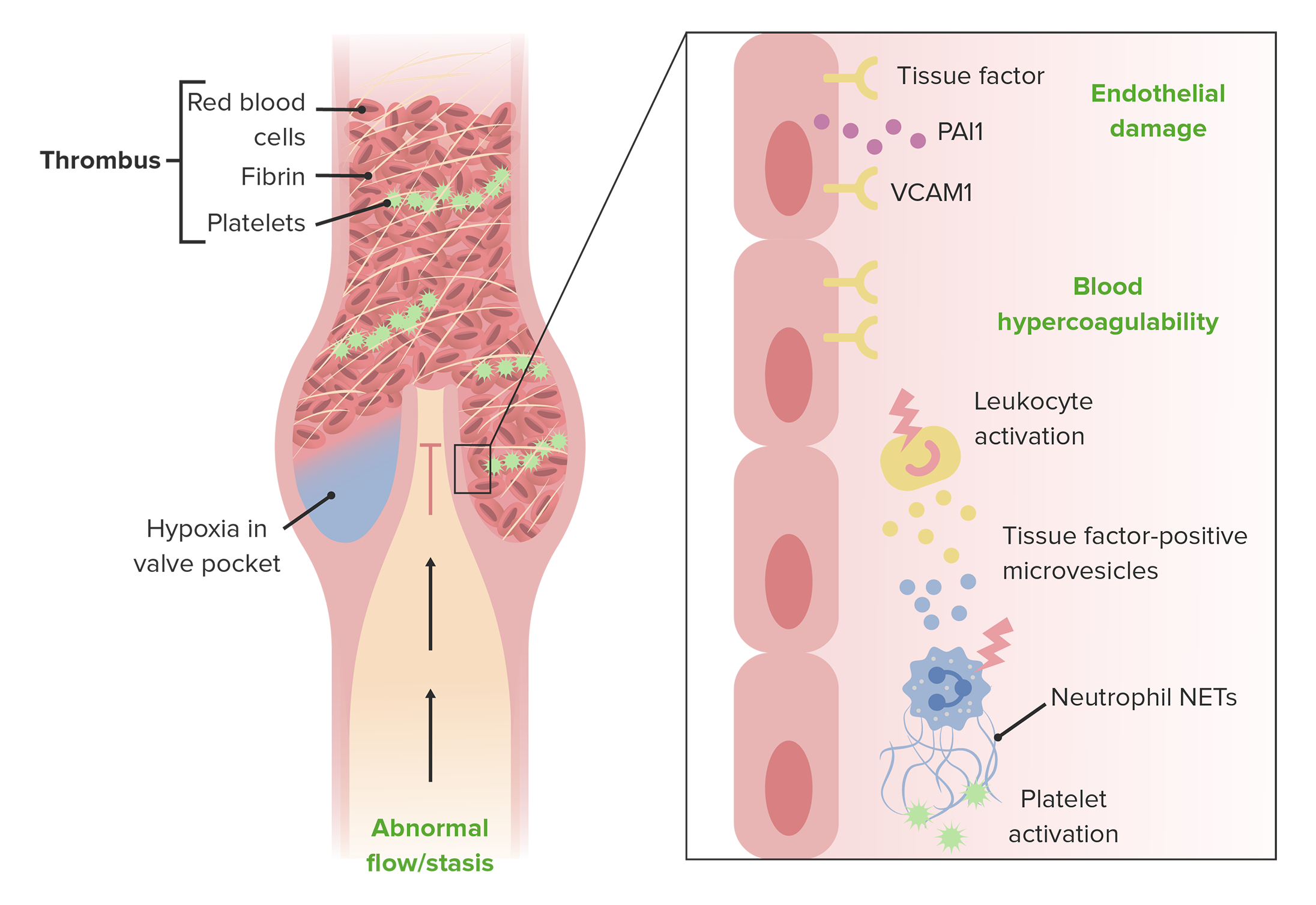Playlist
Show Playlist
Hide Playlist
Deep Vein Thrombosis: Risk Factors
-
Slides 10 VascularMedicine advanced.pdf
-
Reference List Vascular Medicine.pdf
-
Download Lecture Overview
00:00 Other risk factors for DVT: I already mentioned cancer, but one can have a recent trauma that injures the vein and, therefore, satisfies Virchow's number-one requirement for DVT, which is injury to the endothelium. Recent surgery, the same. Immobility results in stasis. Cancer: marked hypercoagulability. Estrogen either in pregnancy or birth control pills increases coagulability. And of course, as we've already mentioned, prior DVT or pulmonary embolism increases the risk for having it occur again. Again, just to reiterate: Here are some of the inherited hypercoagulable states: • Protein C or protein S deficiency • Factor V Leiden or antithrombin III deficiency • There can be—particularly in patients with systemic lupus erythematosus—a clotting antibody that increases the risk for blood clots forming. • Some patients are born with a very high level of an amino acid, homocysteine. That increases the tendency for clotting. 01:13 • And again, some patients with lupus will actually have a protein that activates the clotting system, different from the antiphospholipid antibody. (Some patients will have elevated antiphospholipid antibodies without having lupus.) Hormonal therapy: It's important to stress this. Hormonal therapy, either pregnant… given as contraceptive pills or pregnancy, where there's high levels of female hormones, increase the coagulability of the blood and, therefore, increase the risk for DVT and pulmonary embolism. So pregnancy or pseudopregnancy (which is induced by the oral contraceptive pills) or postmenopausal hormone replacement all increase production of clotting factors in the liver. This leads to a hypercoagulable state—in other words, an increased propensity of the blood to clot. The increased risk for intravascular disease events—myocardial infarction, stroke, DVT / pulmonary embolism—all occur with these products and with these states, because the blood is at a higher likelihood of clotting. And by the way, if you add cigarette smoking on top of one of these things—for example, birth control pills—you markedly further increase the risk for developing DVT and PE, which is one of the reasons we strongly recommend that women who are taking birth control pills not smoke.
About the Lecture
The lecture Deep Vein Thrombosis: Risk Factors by Joseph Alpert, MD is from the course Venous Diseases.
Included Quiz Questions
Which TWO of the following are risk factors for deep venous thrombosis/phlebitis?
- Cancer.
- Recent surgery.
- Anemia.
- Sinusitis.
Hormonal therapy results in increased incidence of DVT because of which of the following?
- Causes hypercoagulability.
- Suppresses mood leading to immobility.
- Causes vessel wall damage.
- Causes fatigue leading to immobility...
- Causes edema.
Which life style choice causes increased risk of DVT?
- Cigarette smoking.
- Alcohol consumption.
- Fatty diet.
- High carbohydrate diet.
- Drinking English tea.
Customer reviews
5,0 of 5 stars
| 5 Stars |
|
5 |
| 4 Stars |
|
0 |
| 3 Stars |
|
0 |
| 2 Stars |
|
0 |
| 1 Star |
|
0 |





